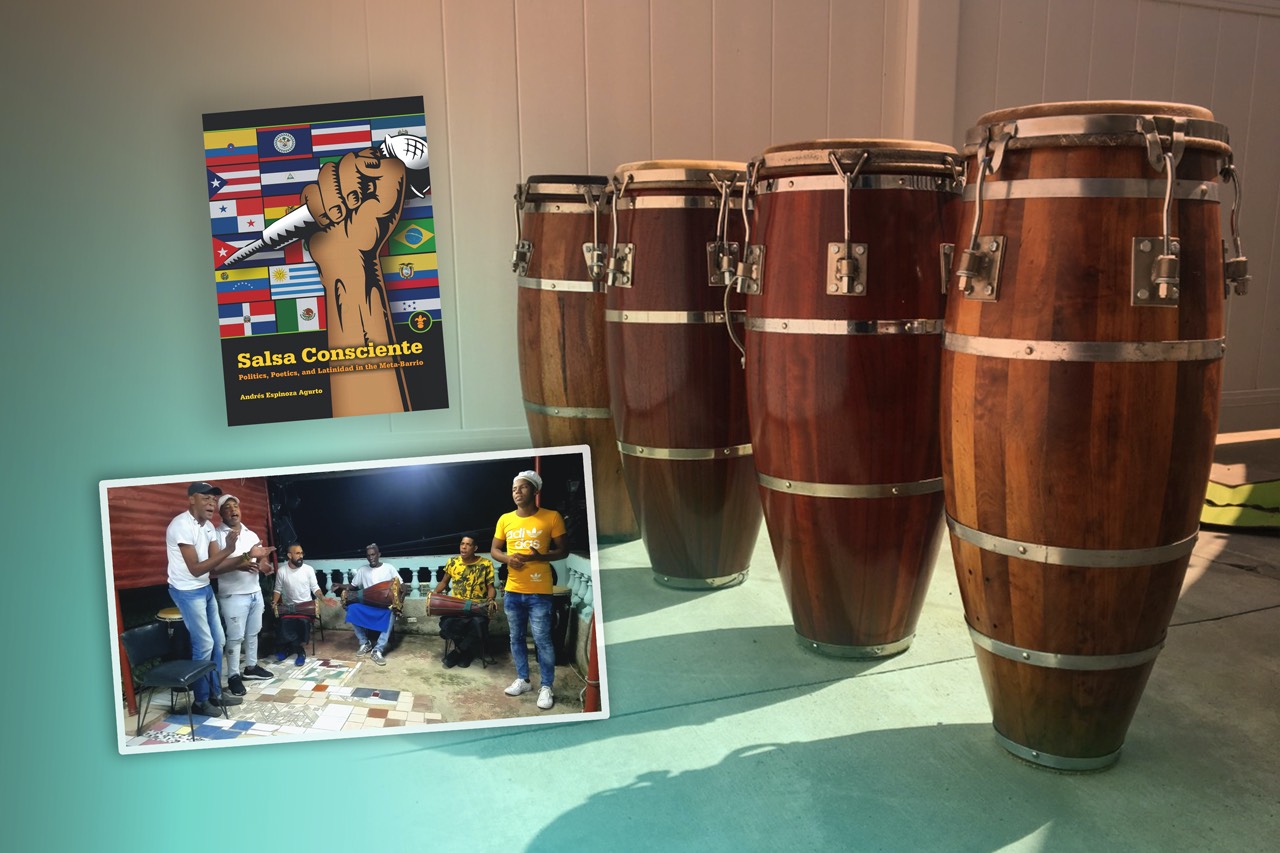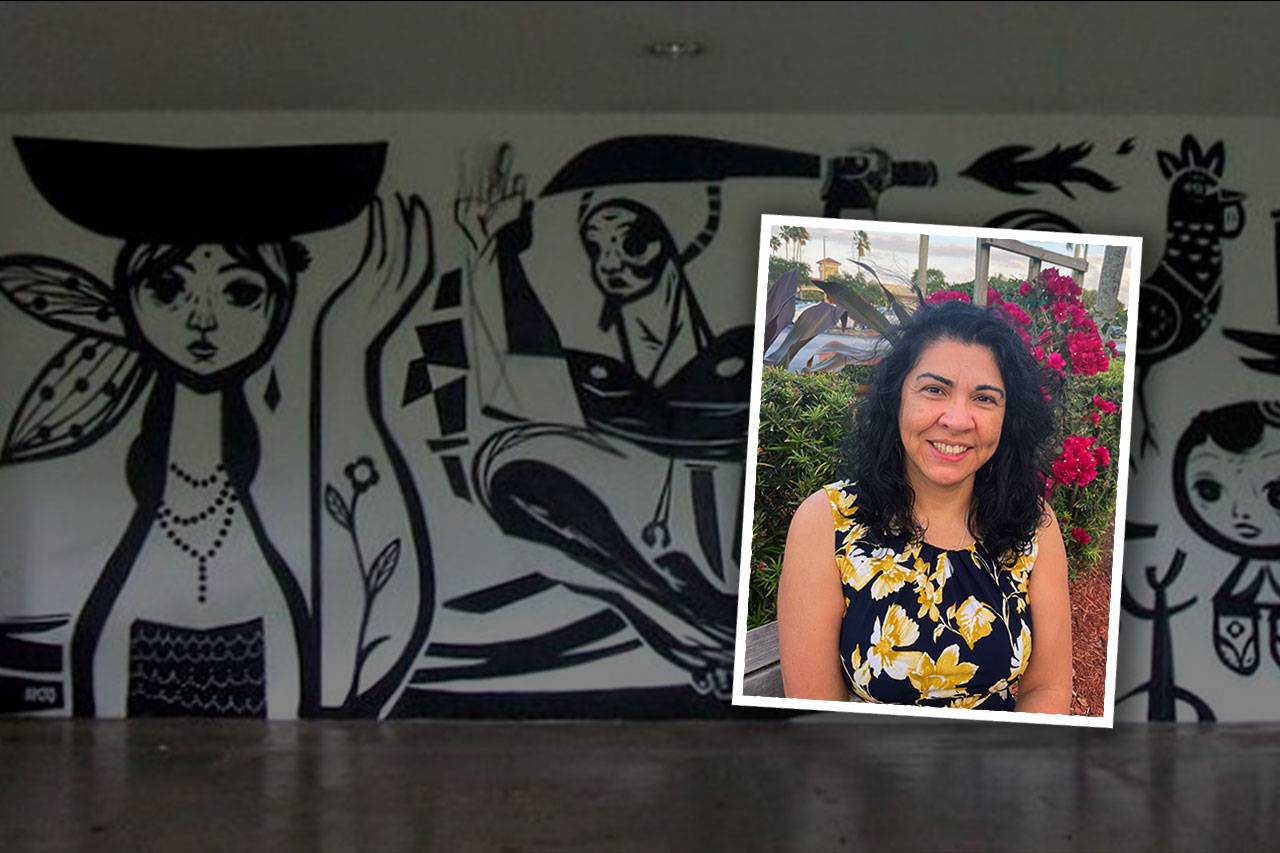Research Thursdays - The Research of Andrés Espinoza Agurto Focuses on the Music of the Caribbean, Latin America and Latinxs in the United States
Thursday, Mar 25, 2021
 An article by Andrés Espinoza Agurto, assistant professor of music, titled “An introduction to the Batá Drums and an interview with Master Drummer Joseito Fernandez Hernandez” was recently published in Percussive Notes: The Journal of the Percussive Arts Society (October 2020).In this article, Espinoza Agurto analyzes the function and importance of the sacred Batá Drums in Cuba during ceremonies, contextualizes the basic layout of the ceremonies upon which the drums are played, and dives into the biography of master drummer Joseito Fernandez Hernandez and his life as a consecrated drummer of more than 40 years.
An article by Andrés Espinoza Agurto, assistant professor of music, titled “An introduction to the Batá Drums and an interview with Master Drummer Joseito Fernandez Hernandez” was recently published in Percussive Notes: The Journal of the Percussive Arts Society (October 2020).In this article, Espinoza Agurto analyzes the function and importance of the sacred Batá Drums in Cuba during ceremonies, contextualizes the basic layout of the ceremonies upon which the drums are played, and dives into the biography of master drummer Joseito Fernandez Hernandez and his life as a consecrated drummer of more than 40 years.
In the article, Espinoza Agurto elaborates: Among the many transcultural expressions that took root in Cuba following the transatlantic slave trade, the worship of the Orishas (deities), a practice commonly known as Santería or Regla de Ocha, is a sacred tradition that can be seen and heard on a daily basis in the cities of La Habana and Matanzas. Music is an intrinsic part of Santería/Ocha. Every single ceremony is accompanied by specific songs, dance, and some kind of percussion, be it clapping, hitting the wall, a door, the floor or drumming. Among the drums that are used for worship in Ocha, the Batá drums are the most important instruments, and play a crucial role during most of the public ceremonies as they are responsible for achieving literal communication between worshipers and the Orishas (deities) venerated. A video related to the article, filmed in Cuba, can be found here:
Espinoza Agurto is also working on a book titled “Salsa Consciente: Poetics, politics and Latinidad in the Meta-Barrio” (expected publication mid-2021, Michigan State University Press). This book presents the development of Nuyolatino popular music from the last 60 years as linked to, and as a consequence of, the mass Latino/Spanish speaking Caribbean migration to New York city that began in the 1950s, the social ferment and movements provoked by this move, the civil rights movement, and its intersection with the media explosion of the 1970s. Principal topics for the book include Nuyolatino social movements, racial analyses of pre-Salsa and Salsa music, Indigenous perspectives in Salsa music, and the crossings of these topics with Latino ethnic consciousness at large. In addition, the book presents the origins and developments of Salsa consciente, a Latino musico-poetic and political movement that began to develop in the late 1950s, exploded in the 1970s, and continued as a leading trend until at least 1991. Explore more works by Espinoza Agurto here:
aespinozaphd.com
Espinoza Agurto has been playing percussion since he was eight years old. He studied Afro-Cuban percussion at the Escuela Nacional de Arte (ENA) in La Habana, Cuba, graduated summa cum laude from Berklee College of Music, receiving a degree in Jazz Composition, and holds an MA in Jazz studies and Ethnomusicology from the University of York (England). He received his Ph.D. in Musicology/Ethnomusicology from Boston University in 2014. He is also a consecrated drummer in the lineage of Añá Ilu Kan.


